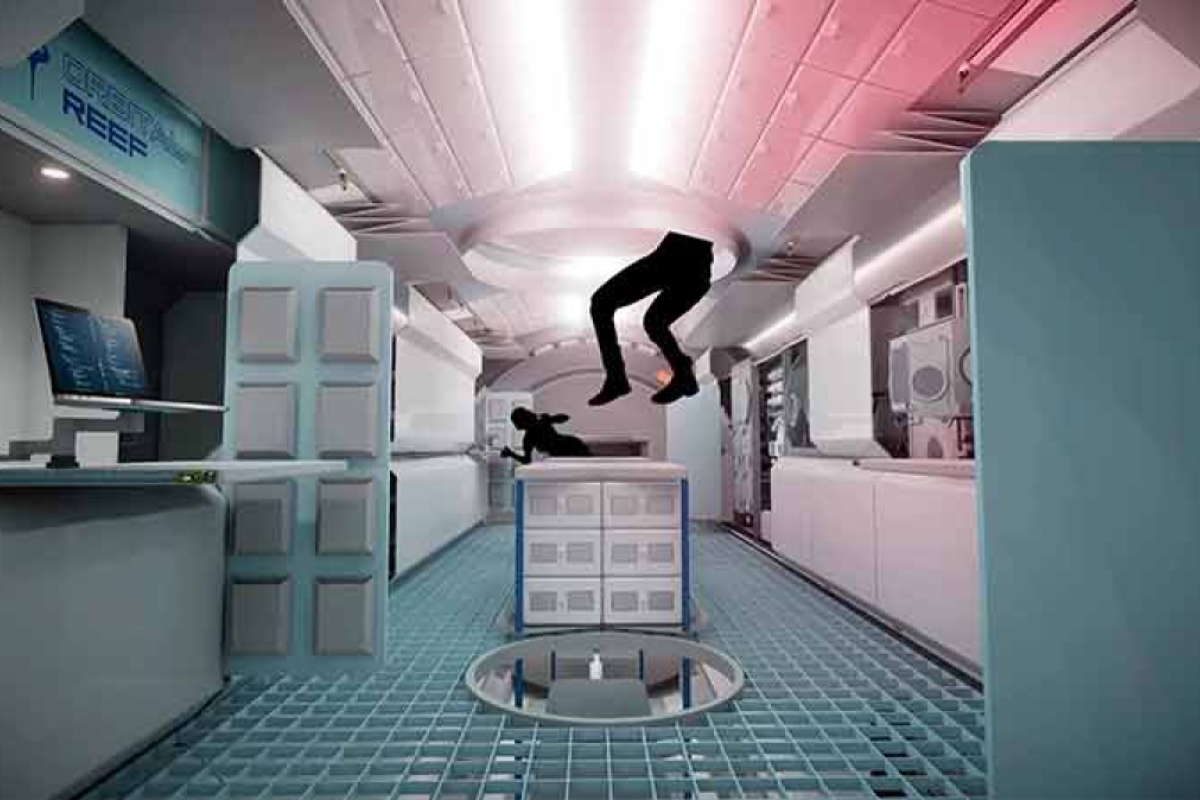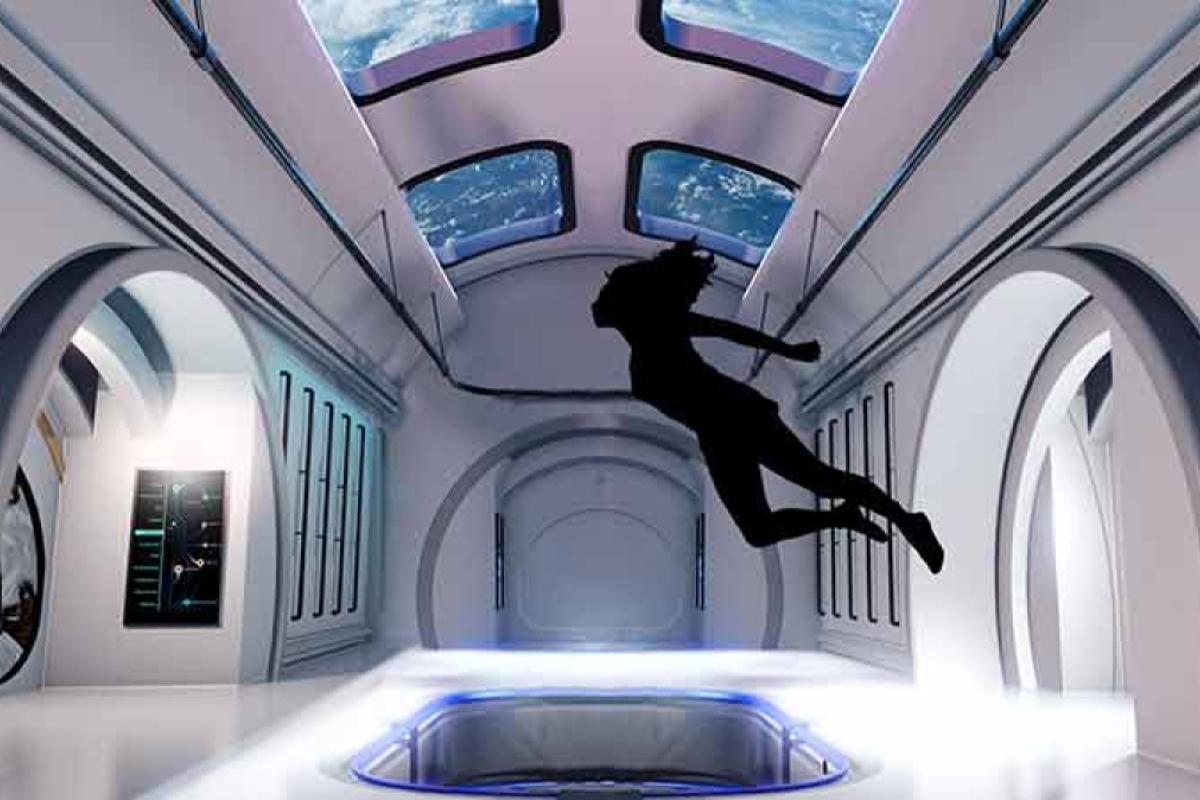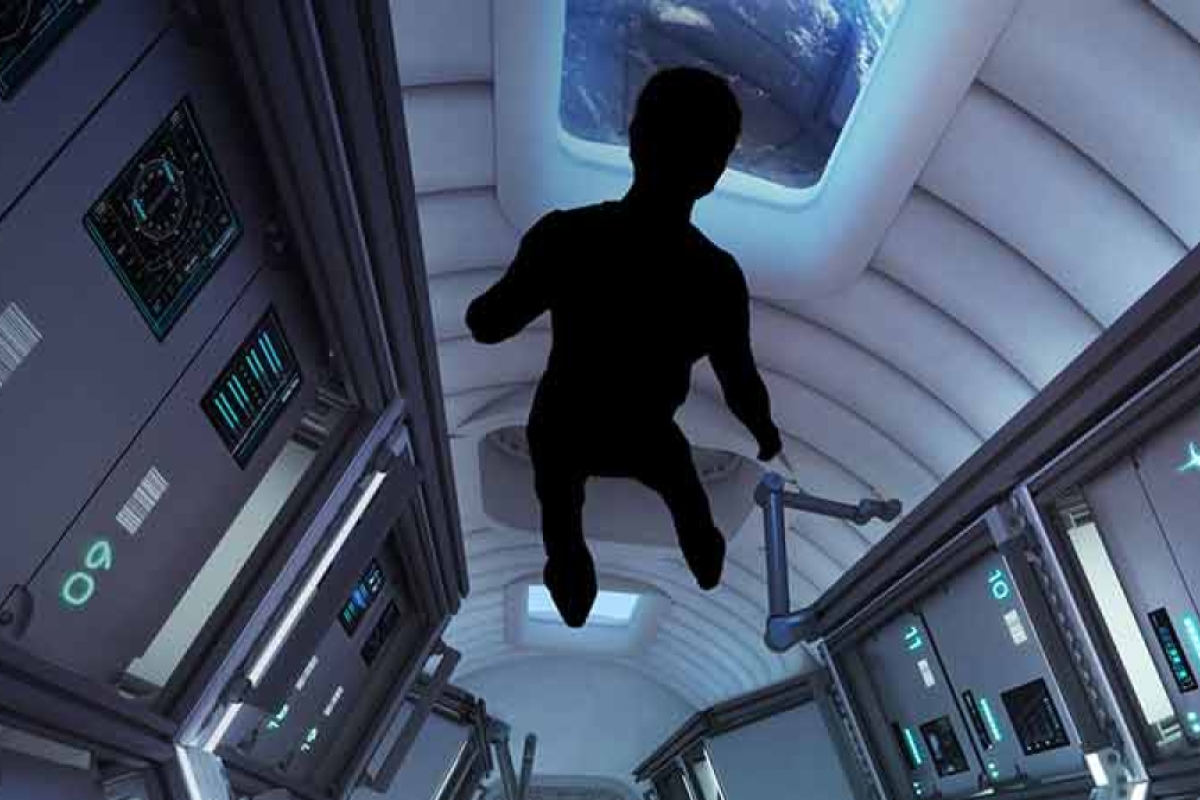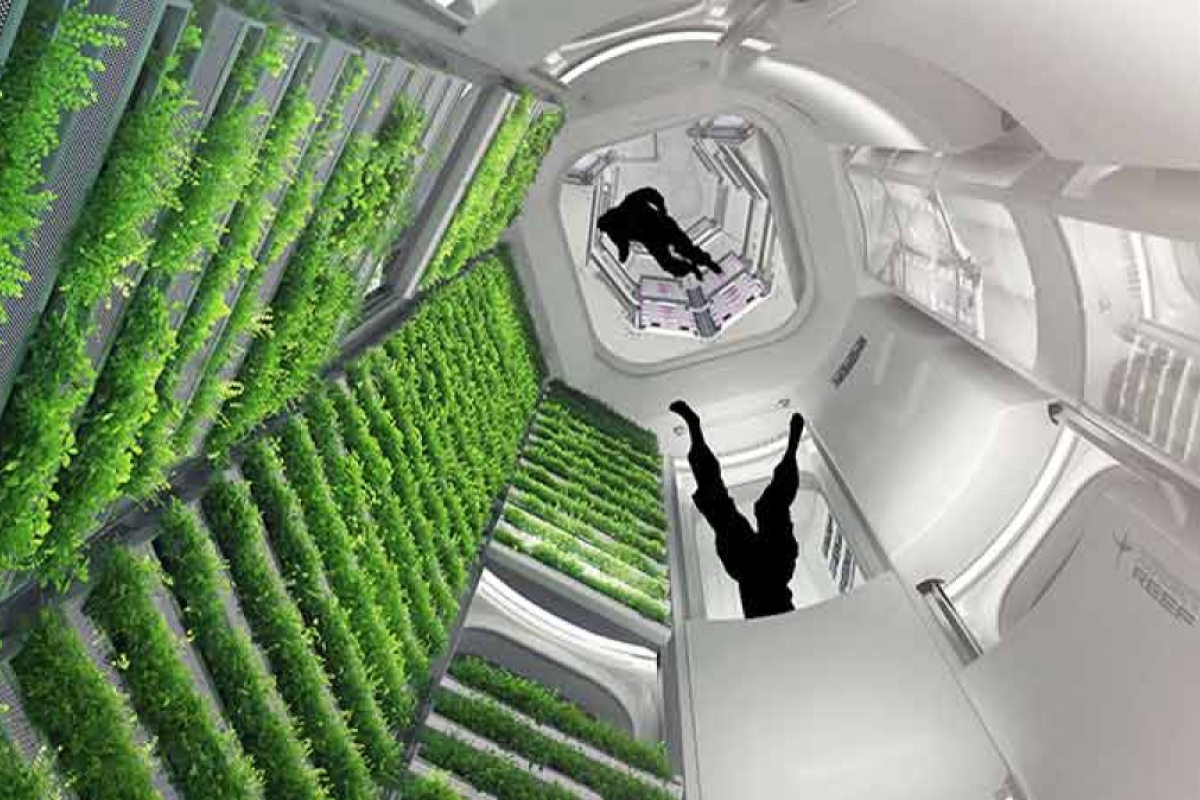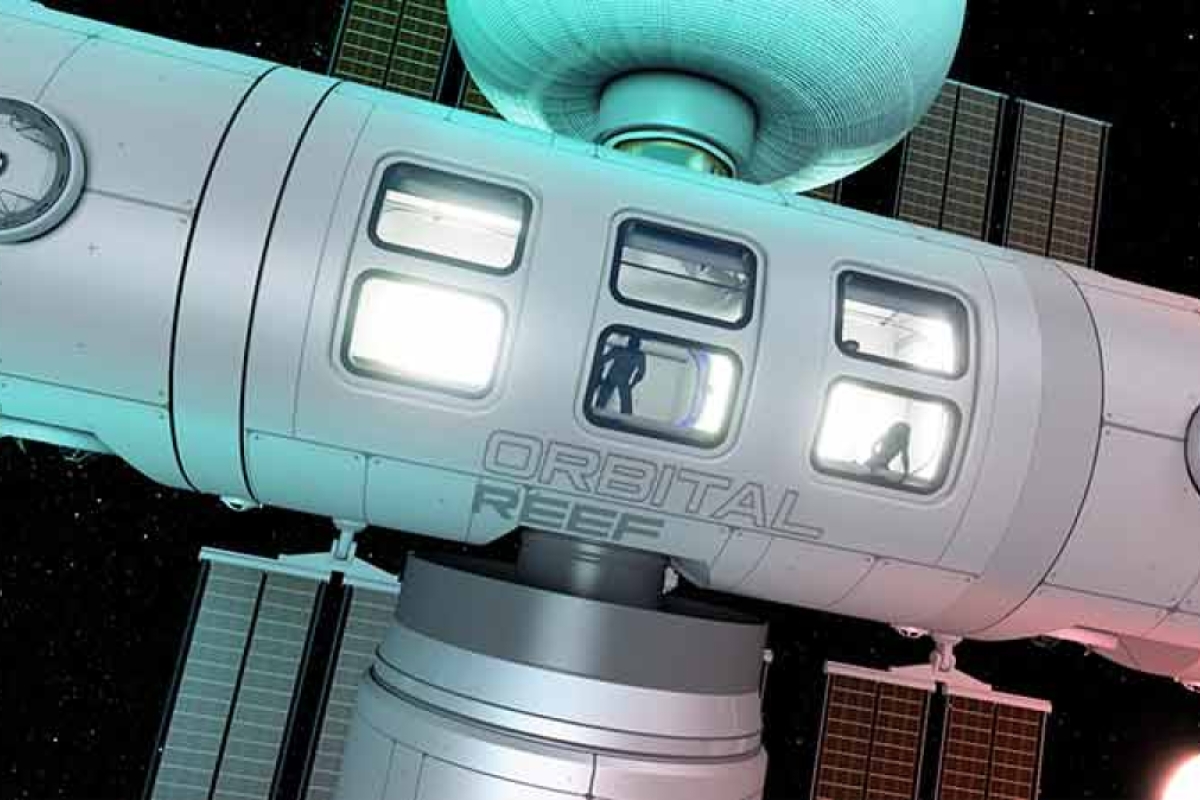A mixed-use business park in space may sound like a daydream of the distant future, but Arizona State University is partnering with Blue Origin and other space industry leaders to create one by the end of this decade.
Dubbed Orbital Reef, the pioneering space station will make its home in low Earth orbit and offer the infrastructure to support new markets in space, including research, manufacturing, travel, education and exploration. And it’s not just for specialists.
“Throughout the 20th century, space exploration has been the realm of the hero, the unreachable astronaut, the one special person. But with Orbital Reef, we will make it accessible for so many more people who can participate in many different ways,” said Lindy Elkins-Tanton, vice president of ASU’s Interplanetary Initiative and principal investigator of the NASA Psyche mission. “This is our moment to bring everyone into space exploration.”
Just like Earth-side business parks, Orbital Reef will provide a shared facility that different entities can lease and use to serve research, government, industrial, international and travel customers. Elkins-Tanton likens it to a village, where people from many organizations can carry out their activities separately and interact with each other. By offsetting the complexity and cost of living and working in low Earth orbit, Orbital Reef opens the space economy to a wider array of small businesses, projects and nations.
The Orbital Reef destination will be backed by industry leaders and teammates including Sierra Space, Boeing, Redwire Space and Genesis Engineering.
ASU’s Interplanetary Initiative leads the Orbital Reef University Advisory Council — a consortium of more than a dozen international universities. The group will establish guidelines and standards of conduct for ethical research on the station, provide consulting for those new to space research, channel academic research onto Orbital Reef, inform the academic user experience aboard the station, and conduct STEM outreach and education programs.
“Something that we're very passionate about at Arizona State University and Interplanetary Initiative is bringing together universities, government and the private sector for a positive human space future,” said Elkins-Tanton, who is also a professor in the School of Earth and Space Exploration. “We've been practicing this for a long time, so bringing together a network like this to support Orbital Reef is right in our wheelhouse.”
Learn more about the economic and scientific opportunities that space offers from ASU Professor Jim Bell.
The Interplanetary Initiative is building a positive future of humans in space that benefits society both on- and off-planet.
“Shifting our mindset to see ourselves as a team of crewmates aboard a space vessel — Earth — opens the door to shared purpose and better cooperation,” said Jessica Rousset, deputy director of Interplanetary Initiative.
The initiative works to identify key needs for human success in space and then form interdisciplinary teams to solve them. This includes collecting insights from the humanities and social sciences as well as traditional STEM fields and inviting diverse voices to help set the course toward an equitable tomorrow. Additionally, the initiative creates public-private partnerships so that any group or industry can be part of shaping this space future.
The initiative is also home to a 6,800-square-foot lab that functions as a research and development workspace. There, external partners connect with ASU students, faculty and staff to design, build and test space hardware and software. Giving students the chance to gain experience working with this technology supports the development of a robust workforce for the growing space industry — and forges a path for more endeavors like Orbital Reef.
At the heart of the Interplanetary Initiative’s current research are questions like: How can we sustain healthy communities in space? How will we manage shared resources in space, from satellites and space debris to minable asteroids? How can we better connect humans and robots in space exploration? And how would humankind react to the discovery of alien life? Finding answers will help prepare humans for a more active role in space, inform Orbital Reef and inspire the university consortium’s efforts.
Learn more about Elkins-Tanton’s path to becoming a planetary scientist and what we can learn from the asteroid Psyche.
Ultimately, Orbital Reef will have significant implications not just for science or business, but for the people of this planet.
“Humans are compelled to explore; it’s in our bones. We will become an interplanetary species,” Elkins-Tanton said. “We have an opportunity to use the inspiration of space exploration to take better care of the Earth by involving all of society and driving technological advances that will help solve problems here below.”
Read more about how ASU is forging connections to advance the next chapter of the space industry.
The Interplanetary Initiative is partially supported by Arizona’s Technology and Research Initiative Fund. TRIF investment has enabled thousands of scientific discoveries, over 950 patents, 328 new startup companies and hands-on training for nearly 39,000 students across Arizona’s universities. Publicly supported through voter approval, TRIF is an essential resource for growing Arizona’s economy and providing opportunities for Arizona residents to work, learn and thrive.
Top image: Rendering of the Orbital Reef space station. Courtesy of Blue Origin Media
More Science and technology

Compact X-ray laser lab aims to reveal deep secrets of life, matter and energy
X-rays allow us to view inside the human body to diagnose broken bones and other hidden problems. More recent X-ray advances are making it possible to see events at the scale of atoms and molecules,…

Apollo lunar samples enable ASU researcher to pinpoint moon’s crystallization timeline
A team of researchers, including Arizona State University geochemist Melanie Barboni, in collaboration with scientists from The University of Chicago, have made a new discovery about the history of…

NASA launches space telescope to chart the sky and millions of galaxies
California’s Vandenberg Space Force Base was the site for Tuesday’s 8:10 p.m. launch of the NASA SPHEREx mission aboard a SpaceX Falcon 9 rocket.The SPHEREx (Spectro-Photometer for the History of the…



